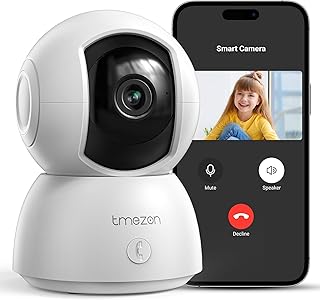Airbnb has made a significant policy change that impacts property owners and guests alike. The company has announced a ban on the use of indoor security cameras in properties listed on its platform. This decision, aimed at upholding privacy standards, will come into effect on April 30. The move follows input from stakeholders and is part of Airbnb’s commitment to creating a safe and transparent environment for its global community.
Previously, hosts were allowed to install indoor security cameras in shared spaces with certain conditions. However, the revised policy now completely prohibits the presence of indoor security cameras in Airbnb listings. This means that regardless of their location or disclosure, indoor surveillance devices are no longer permitted within the properties listed on the platform. The updated guidelines seek to ensure that guests have a sense of security and privacy during their stays.
While doorbell cameras and noise decibel monitors remain permissible, hosts are required to disclose their presence and location before guests make bookings. The use of outdoor cameras to monitor indoor spaces is strictly forbidden, especially in areas with a higher expectation of privacy. Hosts must also disclose the installation of noise decibel monitors, which are limited to common areas within listings and do not record or transmit audio.
To allow hosts time to adjust to these changes, the revised policy will be enforced starting April 30. Violations of the policy will be investigated, and strict actions may include the removal of listings or accounts. Airbnb has emphasized that these policy updates were informed by feedback from guests, hosts, privacy experts, and advocacy groups, underscoring the platform’s commitment to maintaining positive experiences while upholding privacy standards.
The impact of this policy change is expected to be limited, as the majority of listings currently do not feature security cameras. The revised guidelines not only ban indoor security cameras but also introduce stricter regulations for outdoor surveillance devices. The changes reflect Airbnb’s ongoing efforts to adapt to evolving privacy concerns and ensure a safe and transparent environment for all users.
In conclusion, Airbnb’s decision to prohibit indoor security cameras in listed properties marks a significant shift in its approach to privacy and guest safety. By consulting with stakeholders and updating its policies, the company aims to foster trust and transparency within its community. As the hospitality industry continues to evolve, maintaining a balance between security and privacy remains a key priority for platforms like Airbnb.
📰 Related Articles
- Security Guard Thwarts Robbery at Fontana Indoor Swap Meet
- Navigating Geo-Blocked Content: Alternatives to VPNs for Speed, Security, and Privacy
- Zovii Alarm Grip Lock: Affordable Motorcycle Security Solution
- Xerox Versalink Printers Vulnerable to Hackers, Security Risks Identified
- Xerox Versalink C7025 Printer Vulnerability Exposes Network Security Risks





